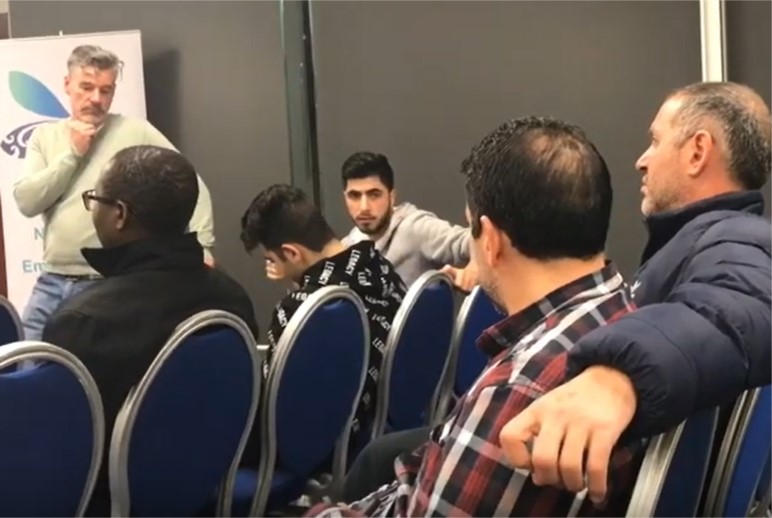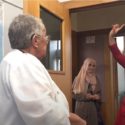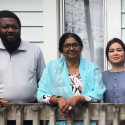The soaring confidence and sense of achievement experienced by Syrian refugee women who’d taken part in a practical, E Tū Whānau funded programme to support their resettlement did not go unnoticed by their men.
“We thought it was great but then asked, what about us?” said Yazan El Fares.
Yazan was one of a dozen mainly Syrian men to attend the Men with Mana hui run by E Tū Whānau in collaboration with the Porirua and Upper Hutt Multicultural Councils in Porirua’s Te Rauparaha Centre over three consecutive Saturdays in October (2019).
The men co-designed the course by identifying the topics they wanted expert information about. They wanted to know about owning their own homes, navigating the health and welfare systems, employment opportunities and setting up their own businesses.
E Tū Whānau kaimahi, Pohswan Narayanan, and Angus Ward, President of the Porirua Multicultural Council worked together to bring in speakers from a variety of agencies, who, through an Arabic interpreter, shared information with the men and answered their questions.
“These are responsible family men who want to do the best for their whānau. Many were primary bread winners before they had to flee their homes. Since coming to New Zealand, they have felt isolated and ignorant of many of our systems and regulations,” says Pohswan.

Osama Loulou was the interpreter at the three hui.
“I learnt such a lot because I had to interpret it all. It was wonderful,” he said.
Another participant said that the information was just what the men needed.
“I was a plumber and builder back home. I did not know that I needed to have a practicing certificate to do that sort of work here. Now I do. We need this kind of information sharing.”
Angus says the hui have been invaluable in building relationships with men who are his neighbours and valued members of the community.
“They can tell us directly what they need, and we can act as a conduit between them and the agencies and organisations that can help them,” he says.
“Refugees are like everyone else in that they need to feel safe in their communities, need to know that there are opportunities for them, and that there are pathways to achieve their goals.”



